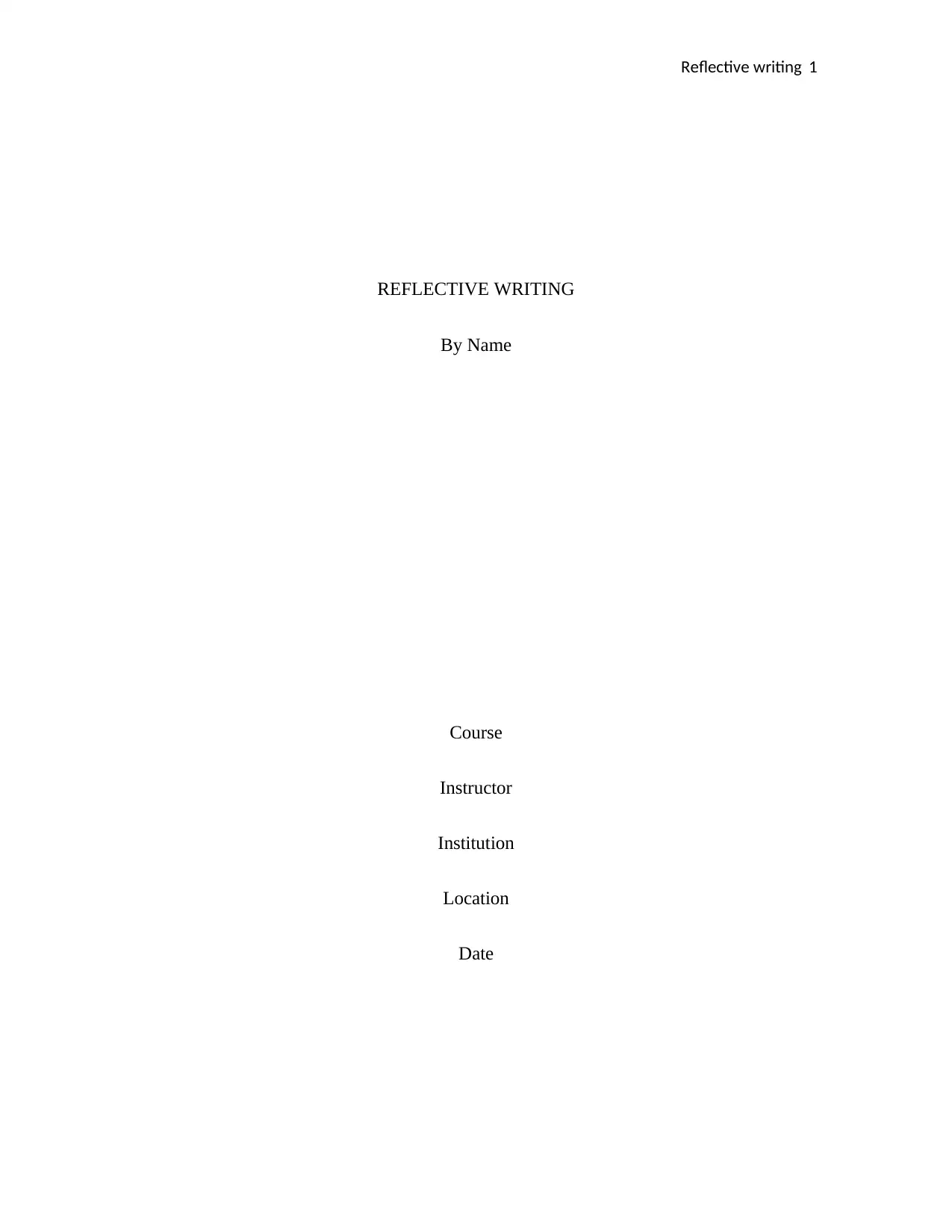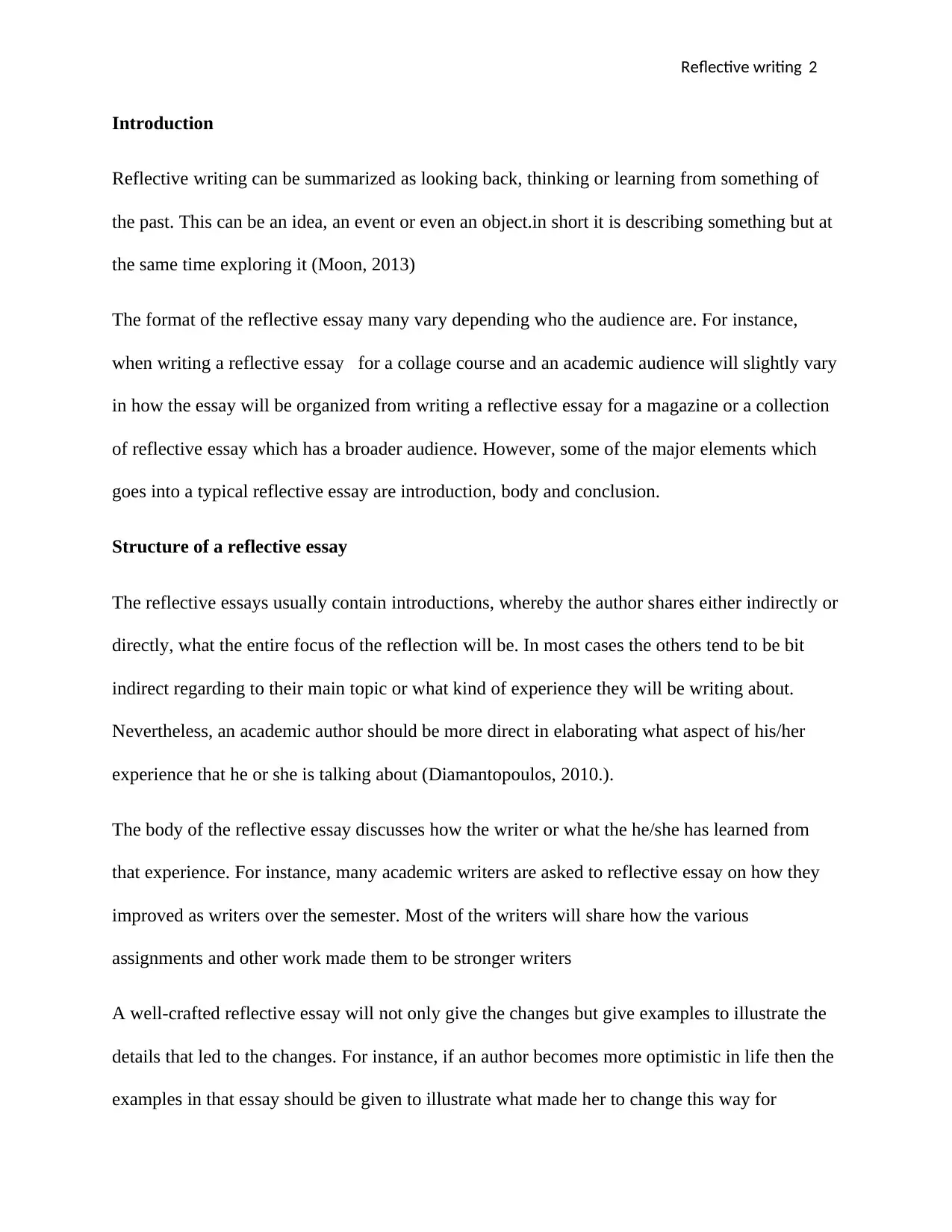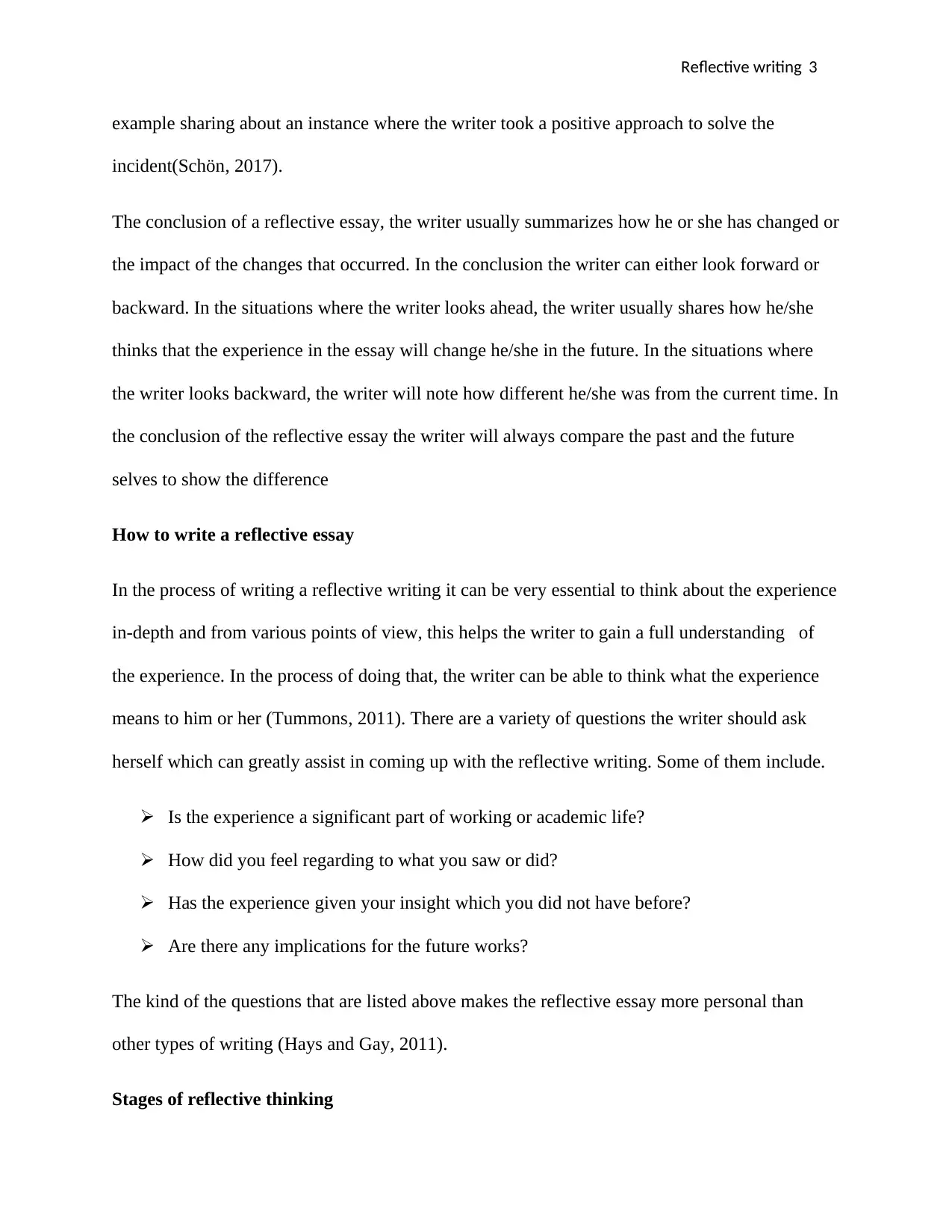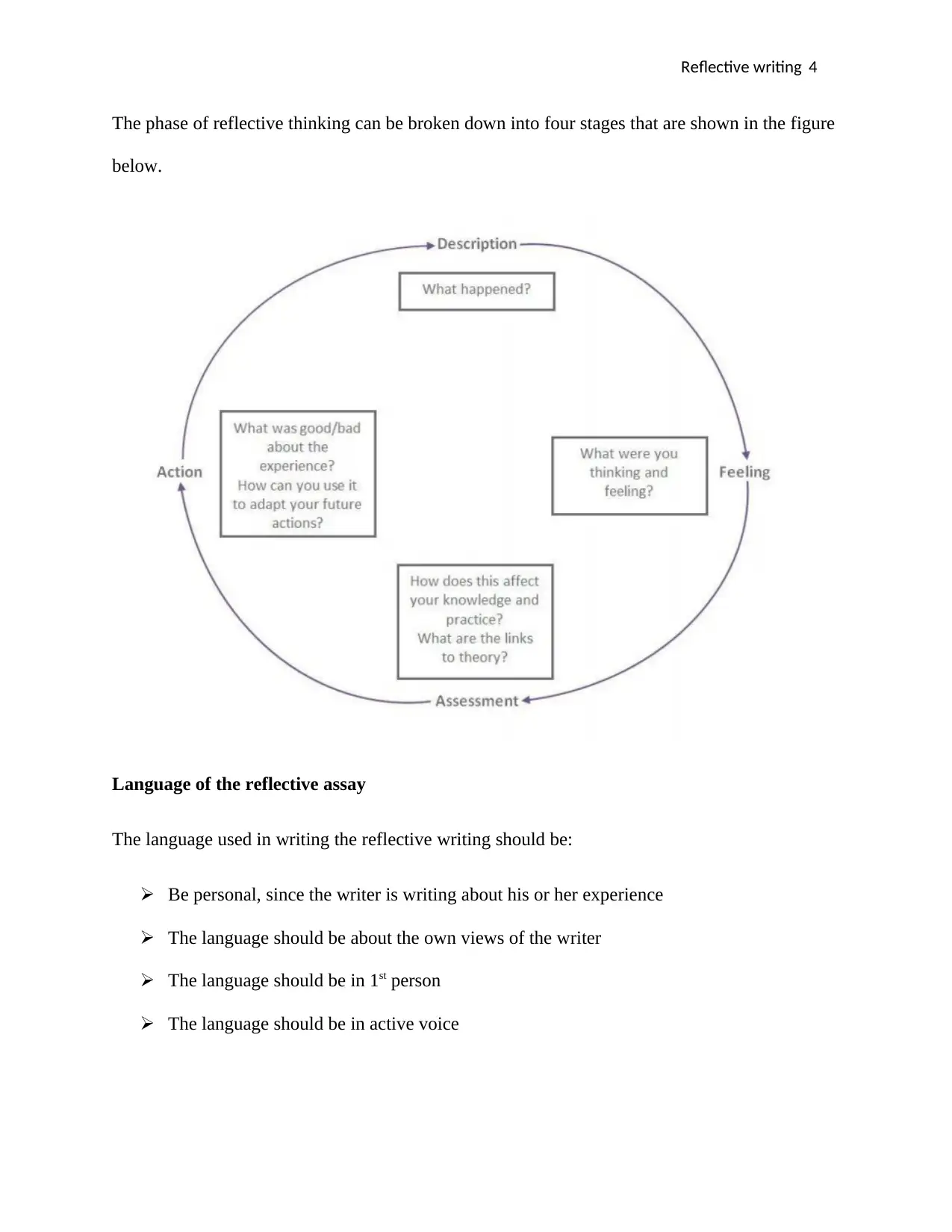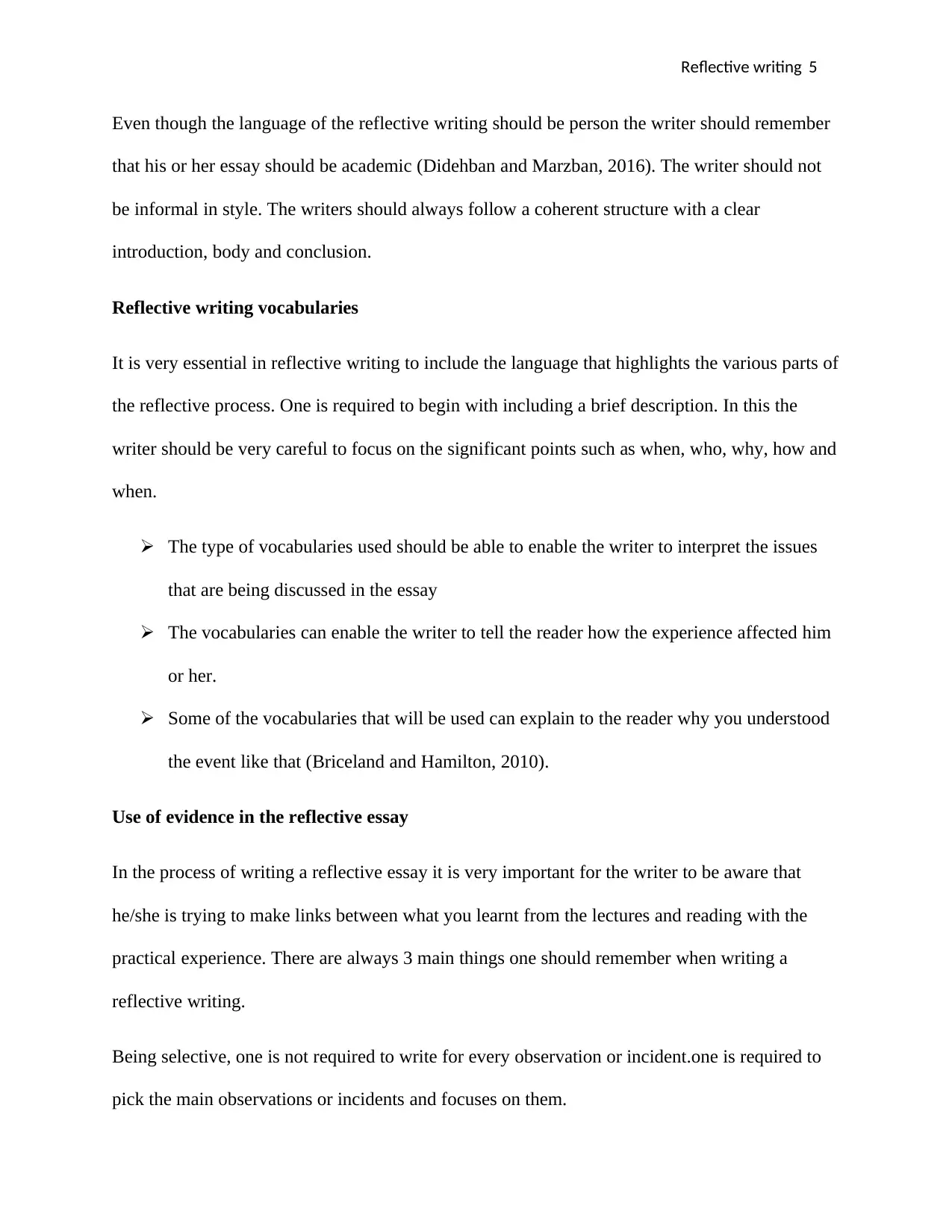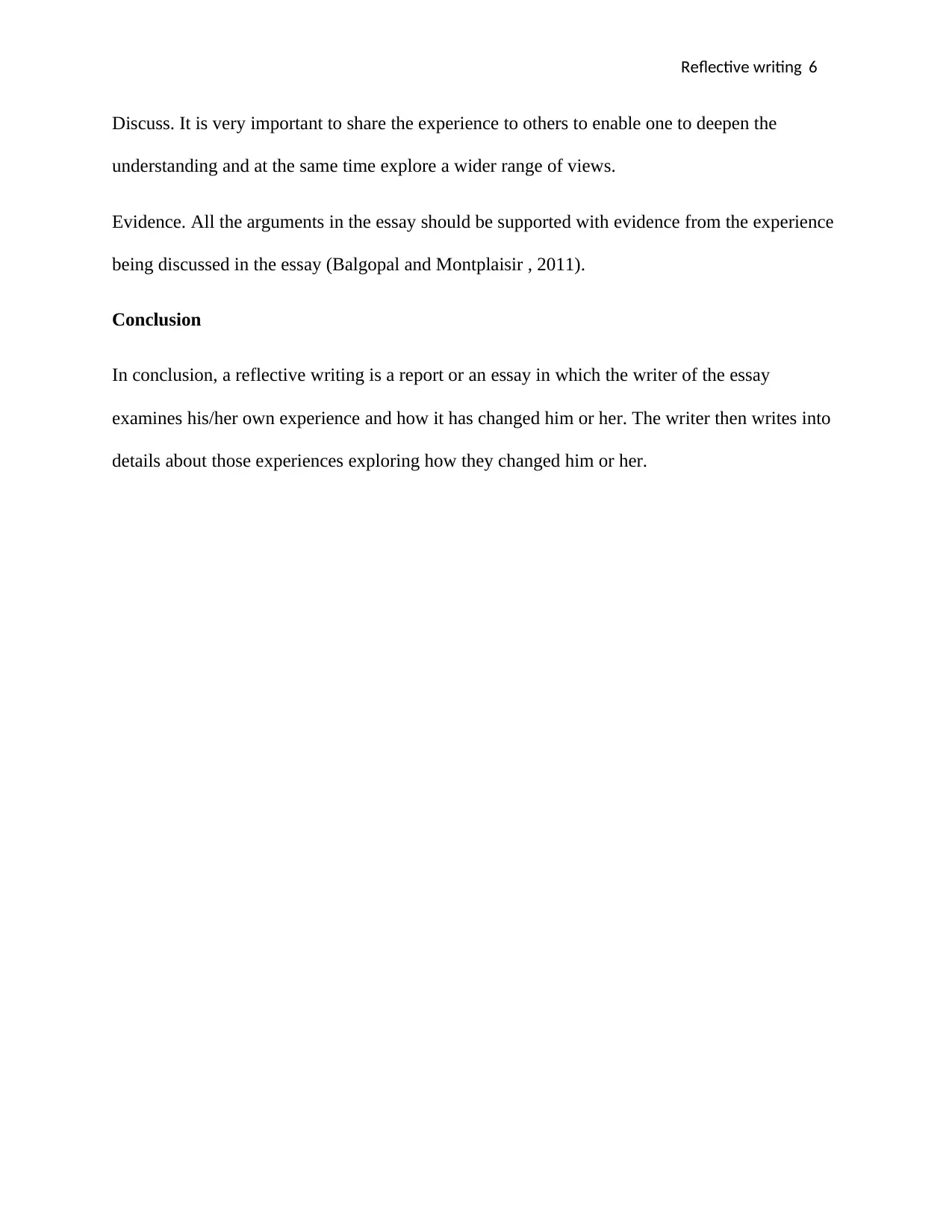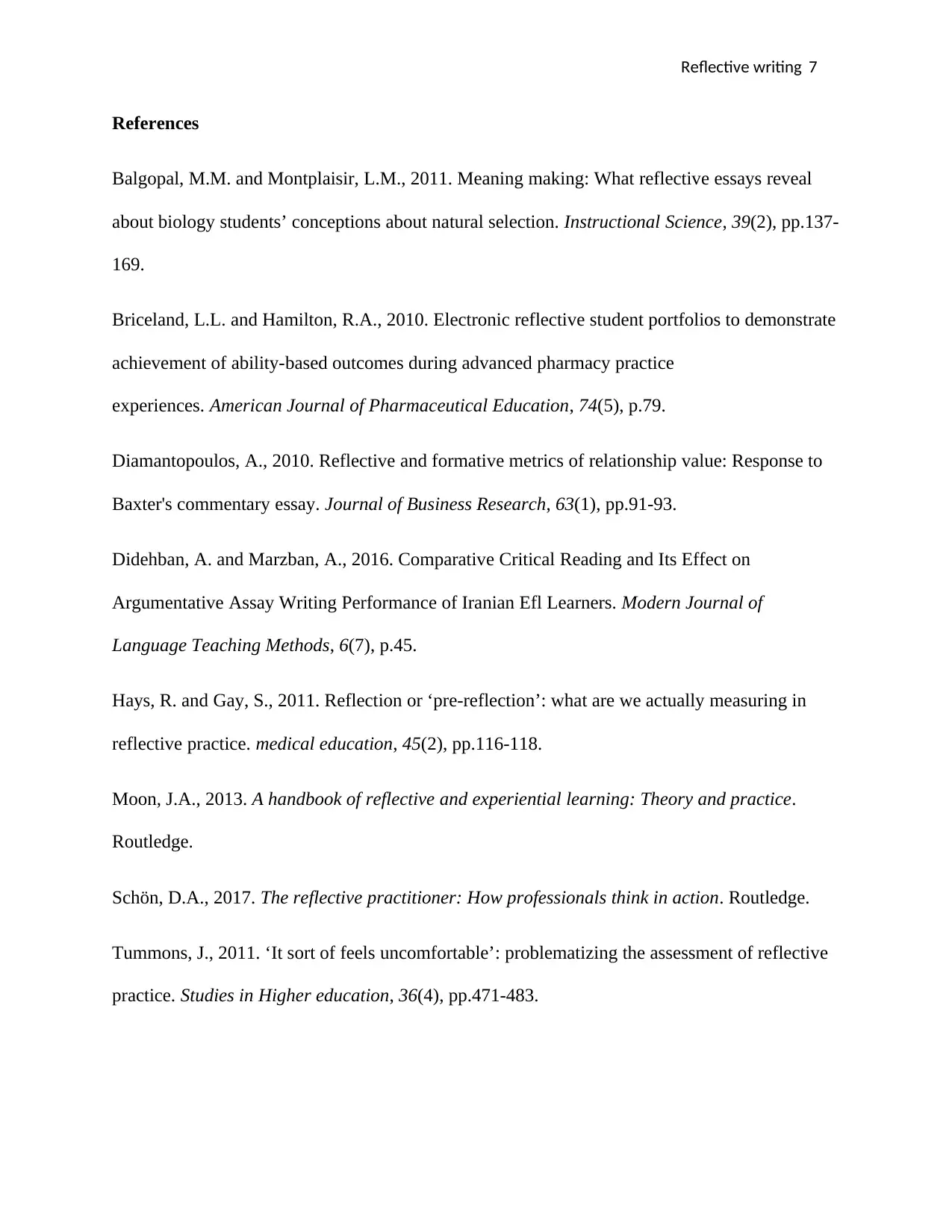Reflective Essay: Exploring Personal and Academic Growth
VerifiedAdded on 2023/06/07
|8
|1401
|447
Essay
AI Summary
This essay delves into the art of reflective writing, providing a comprehensive overview of its structure, key elements, and the process of crafting effective reflections. It begins by defining reflective writing as a process of looking back, learning, and exploring past experiences, events, or ideas. The essay outlines the standard structure of a reflective essay, including the introduction, body, and conclusion, and emphasizes the importance of clarity and directness, especially in academic contexts. The body of the essay discusses how to analyze experiences, draw insights, and provide supporting examples to illustrate changes and learning. The conclusion focuses on summarizing changes and their impact, either looking forward or backward to compare past and future selves. The essay also provides practical guidance on how to write a reflective essay, emphasizing in-depth thinking, multiple perspectives, and the use of relevant questions to guide the writing process. It further details the language of reflective essays, highlighting the importance of a personal yet academic tone, the use of first-person perspective, and the inclusion of vocabularies that interpret and explain the impact of experiences. The essay stresses the use of evidence and provides guidelines for selecting relevant observations and supporting arguments with evidence. Finally, the essay concludes by summarizing the key aspects of reflective writing, emphasizing its role in examining personal experiences and their impact on the writer. This assignment is available on Desklib, a platform offering past papers and solved assignments for students.
1 out of 8
